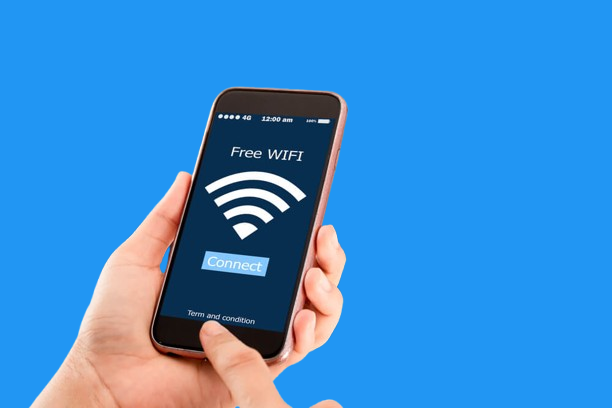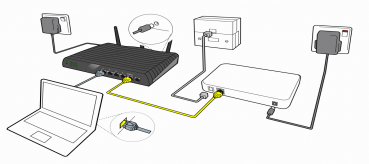Public Wi-Fi vs. Mobile Data: Which One Is Safer?

We’ve all been there—you’re at a coffee shop, the airport, or a hotel, and your phone automatically latches onto the free Wi-Fi. It feels convenient, but is it safe? Many people don’t realize that connecting to public Wi-Fi can expose them to risks, while mobile data often provides a more secure alternative.
Let’s dig into the differences and see when you should choose one over the other.
The Risks of Public Wi-Fi
Public Wi-Fi networks are open by design. That means anyone nearby can connect—and sometimes, hackers are lurking in the same space. The risks include:
- Data interception: Hackers can “listen in” on your traffic if the network isn’t encrypted.
- Fake hotspots: Cybercriminals set up Wi-Fi networks with names like “Free Airport Wi-Fi” to trick users.
- Password theft: Logging into email, banking apps, or work accounts over insecure Wi-Fi can put your credentials at risk.
Why Mobile Data Is Safer
Cellular networks, especially 4G and 5G, are generally more secure because:
- They use encryption by default, making it harder for attackers to snoop.
- Access is tied to your SIM card and carrier, not an open network.
- Connections are direct to your provider’s towers, reducing the chance of “man-in-the-middle” attacks.
Also Read: Best Internet Plans for Seniors in the U.S.: Affordable, Reliable, and Senior-Friendly
In short, mobile data is much harder for hackers to exploit compared to public Wi-Fi.
When You Can Safely Use Public Wi-Fi
Not all public Wi-Fi is unsafe. If you take precautions, you can minimize the risks:
- Use a VPN: A Virtual Private Network encrypts your traffic, making it unreadable to outsiders.
- Stick to HTTPS websites: Look for the padlock symbol in your browser before entering personal information.
- Avoid sensitive tasks: Don’t log into banking or work accounts on open Wi-Fi.
When Mobile Data Is the Smarter Choice
- Banking and shopping: Always use mobile data for financial transactions.
- Business work: If you’re handling company emails or sensitive files, avoid public Wi-Fi unless you have a VPN.
- Traveling abroad: Some hotel and airport Wi-Fi systems are outdated and poorly secured—mobile data is safer.
Also Read: What Not to Do And Internet Safety Tips To Protect You Online
Final Thoughts
Public Wi-Fi is convenient, but it’s not always safe. Mobile data offers stronger built-in security, making it a better choice for anything sensitive. That doesn’t mean you should never use Wi-Fi—just be cautious, especially on public networks.
The golden rule:
Use Wi-Fi for casual browsing and downloads, but switch to mobile data for anything private or important
Related Posts

Tue, Mar 20, 2018 12:18 AM
Broadband Deals Money SubscriptionHow Much Are You Really Paying Per Minute for Your Streaming Services
Streaming isn’t cheap anymore — but how much are you really paying per minute of Netflix, Disney+, or Spotify? We crunched the numbers so you can see which subscriptions give you the best bang for your buck.

Tue, Mar 20, 2018 12:44 AM
Technology Broadband InstallationInternet Provider Installation FAQs
Guide to Internet Provider Installation

Fri, Jul 6, 2018 7:04 PM
Eco-FriendlyWhere to recycle your technology hardware!
Easy tips on recycling your old computers and phones

Fri, Dec 6, 2019 4:22 PM
SafetyAlways Check the Website You Visit
Knowing the Threat

Fri, Dec 6, 2019 6:47 PM
SafetyTerrifying Cybercrime Figures
The internet allows us to connect with each other from all over the world, find the answer in a matter of seconds to almost every question, order food, get directions, send pictures, and so much more.